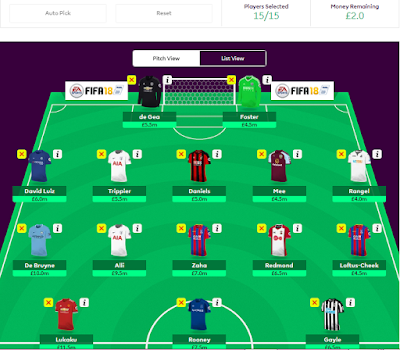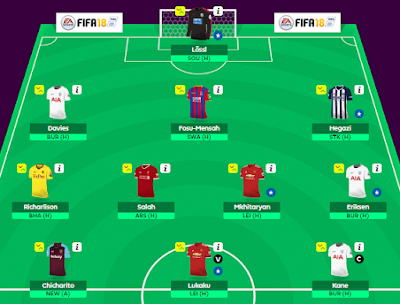RACE TO THE BALON D'OR PODIUM
For all the complaints over how closed the title races of modern football have become, competitions such as the Premier League and La Liga are practically wide open to all-comers in comparison to the annual battle to be named the best footballer in the world.
Historic seasons by a treble-winning Wesley Sneijder in 2009, Germany’s World Cup claiming, sweeper-keeper extraordinaire Manuel Neuer in 2014 and Franck Ribery, whose irresistible wing-play also inspired his club-mates to a treble in 2013, were not enough to overcome the incumbents who have swapped the honour since 2008.
Football may still thrive on Bill Shankly’s famous maxim of “if you are first you are first, if you are second you are nothing”, but for once there’s no shame in coming third, not in an era dominated by Lionel Messi and Cristiano Ronaldo anyway.
 |
| A seemingly unbreakable duopoly |
With this year’s FIFA Ballon d’Or long-list now cut down to 23 names, and other high performers outside the roster of nominees deserving of a shot at the top three, which players within the current generation fit the bill as potential history makers, and who is the third best player in the world for 2015?
Rating the contenders to be named the best in the world in a Top Trumps style.
COMPLETE PLAYERS
Records that have stood for decades, many of which had been assumed to be unbreakable, have been smashed by Messi and Ronaldo. Expectations for the impact that individual players can have in an age where tactical discipline is paramount and systems rule all have been defied at every turn.
They have out-scored specialist strikers, created more chances than most playmakers and acted as hubs through which their team’s play through and talismanic cutting edges relied upon to win the day in all competitions and against every opponent.
Ronaldo and Messi topped the scoring charts across Europe’s top five leagues last season
Goals are football’s bottom-line and an ability to directly affect a score line is an excellent metric by which to judge a player’s importance and quality, but it’s not the only method by which greatness is judged.
Defenders and midfielders that can cover every job and duty in their area of the field and beyond are also worthy contenders for the crown, though it could be argued that a lack of goals, compared to the prolific levels of Messi and Ronaldo, ultimately prevented Sneijder, Ribery and Neuer from toppling them.
All three enjoyed one-off seasons that were arguably more impressive for their positions — Sneijder was by far the best playmaker in the world in 2009, Ribery reigned as the best, most tricky winger around and Neuer took goalkeeping to new heights — but the undeniable, all-round quality of Messi and Ronaldo meant that form and trophies only counted for so much.
A truly convincing successor to these two duelling giants of the present day must be similarly omnipotent and complete.
Kicking off the search, we begin with the Squawka Performance Score, which measures a player’s ability to positively influence a game of football in defence, in possession and in attack, based on over 500,000,000 different data points.
Robben has the highest average Performance Score for the past seasons after Messi and Ronaldo.
Unsurprisingly, Messi and Ronaldo are as dominant here as they are outside of the arithmetic, running up scores of 84.03 and 74.03 per 90 minutes played in La Liga and the Champions League between August 2014 and today, respectively – well ahead of the chasing pack.
Their closest rival is Arjen Robben, who has been electric when fit for Bayern Munich, with a score of 52.41, followed by James Rodriguez at 50.92 — similarly hamstrung by fitness issues but also impressive when available to play — and Robert Lewandowski at 48.54.
INFLUENCE IN THE FINAL THIRD
As already covered, it’s not all about goals, but they certainly help, with Robert Lewandowski top for goals per 90 minutes in league competitions and the Champions League
However, efficiency and creativity shouldn’t be overlooked either. Ronaldo may be notorious for his ever-spiralling shot counts, but he makes enough of them count to justify his trigger-happy tendencies. Yet that doesn’t mean others shouldn’t be rewarded for choosing quality over quantity.
Lewandowksi is currently the most prolific goal-scorer of the players judged.
James Rodriguez comes out well again, with the highest average of chances created per 90 (3.85) and the best conversion rate (30.8%) but given Thomas Muller’s more shot-happy role for Bayern compared to the Colombian playmaker, his second-place conversion rate of 30.15% is even more impressive.
Alexis Sanchez, Robben and Antoine Griezmann also shine here, with the former two especially producing plenty of opportunities for team-mates while making plenty out of the chances that came their way, too.
The latter wasn’t as creative but for the same reasons as Muller must be respected, boasting a conversion rate of 29.2% while playing as one of Diego Simeone’s primary attackers at Atletico Madrid, and increasingly finding himself deployed up-front as a more orthodox forward who is far from shy about taking shots.
THE TALISMAN FACTOR
Ronaldo and Messi have been involved in a whopping 55.21% and 50.94% of Real Madrid and Barcelona’s goals respectively in La Liga and Europe since August 2014. None of our contenders for third can match that kind of consistent, match-winning contribution, but who is the most important to their team?
So as not to penalise candidates whose best work comes outside of the penalty area, Squawka Awards per game have also been counted — commendations earned through being the best player in their team, best attacker, best defender and best possession player in a match as well as man of the match according to Performance Score.
Again, Messi and Ronaldo dominate with 2.16 and 1.65 awards per game each, respectively, with Eden Hazard in third with 0.91, or almost an award per game, followed by Alexis Sanchez and Sergio Aguero, who trail their fellow Premier League star by a relatively large gap as the field begins to compress around less than an award per game.
Hazard vs. Aguero – Premier League talismans.
However, Aguero is the closest to Messi and Ronaldo for the percentage of City goals that he can claim as his own with 41.52%, in front of Griezmann, again impressive, with 35.71%, Lewandowski at 31.08% and Neymar with 30.19%.
WORKING WITH OTHERS
A team player isn’t just someone who can lay on assists but one who also gets stuck into defensive side of the game, doing what the system and their manager requires of them to keep shape and win the ball, and at this level, relying on their colleagues less by being able to do more themselves.
Here, Paul Pogba begins to shine when judged on his defensive duels, interceptions and his qualities as an all-rounder, alongside James Rodriguez, whose contribution to Real Madrid’s game plan covers far more than creating chances and picking out team-mates with his incisive through balls.
Pogba and Alaba shine outside of the final third.
David Alaba also rises to the fore here, making arguably the most well-rounded contribution to his club side through his appearances as a full-back, centre-back and midfielder, picking up whatever combination of roles Pep Guardiola selects for him.
We also looked at the players who were most involved in their team’s football, with Hazard coming first having made 10.57% of Chelsea’s total passes over the last seasons in the Premier League and Champions League, with second-placed Messi responsible for 8.84% of Barcelona’s passes by comparison. Next was Alaba, who is currently the most prolific passer of the ball in Europe’s top five leagues, with 7.71%. Sanchez comes in at fourth with 7.54%.
FOR CLUB AND COUNTRY
Finally, we turn to the players’ international form, and the salvation of Wales’ Gareth Bale, who has otherwise disappointed in every other department so far for his club. His importance and prowess for his country cannot be doubted, however, having fired them into the automatic qualification places for Euro 2016 with seven goals in 10 appearances since the summer of 2014 — their first qualification for the major tournament since the 1958 World Cup.
Bale has been heroic for Wales.
Alaba, who is the pulsating, midfield driving force and inspiration behind Austria’s own surge to qualify for next summer’s European Championships, also deserves praise, scoring four in nine and acting as a roaming all-rounder for his national team, influencing matches in every area all over the park.
Then there’s Neymar, who has continued to rack up the goals for Brazil regardless of the politics and problems on and off the field, with 11 goals in 13 appearances; their win rate, in fact, drops down from 92% to 60% without him. Alexis Sanchez’s impact on Chile’s Copa America win on home soil cannot be discounted either.
There we go, all the players listed above have been nominated in the final 23. Who do you think will climb the podium?







Comments
Post a Comment